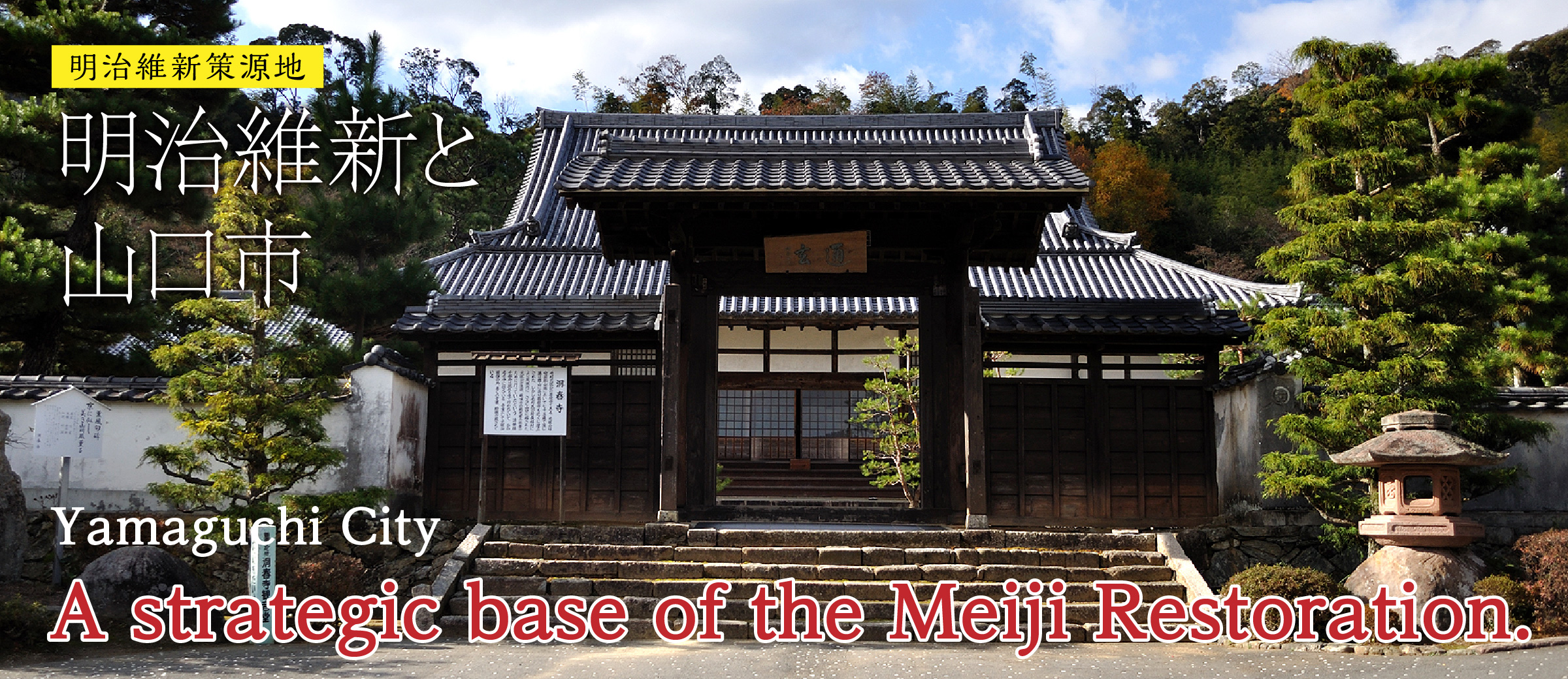Places connected to history
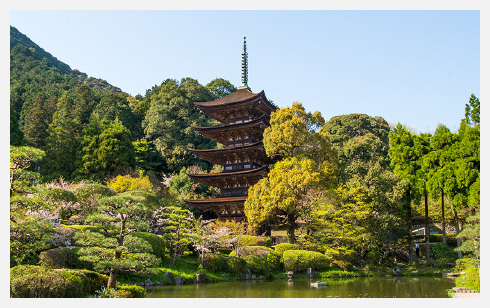
» Rurikoji Temple
Rurikoji Temple is a historical park which has a Five-Storied Pagoda connected to an Ouchi feudal lord and historical sites of the Meiji Restoration.
A national treasure, the Five-Storied Pagoda, which is the symbol of Yamaguchi City, is enshrined at Rurikoji Temple. This park is a special feat・・・
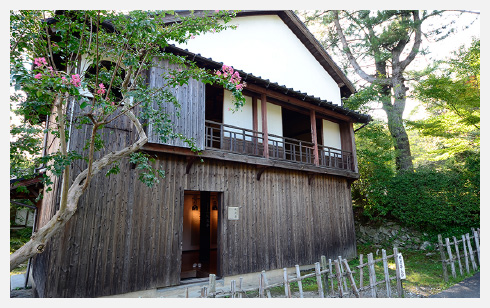
» Chinryutei
Kido Takayoshi, Saigo Takamori and Okubo Toshimich had secret conferences for the Satsuma-Choshu Alliance at Chinryutei.
The wealthy merchant Abe family’s place was used as the headquarters of the system of 'alternate attendance' by a daimyo in Edo in Yamaguchi and ・・・
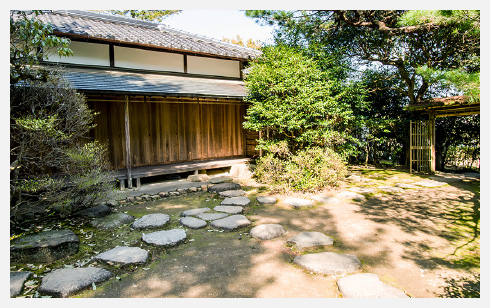
» Rozando
Rozando is the site of secret meetings for overthrowing the Shogunate built by Mori Takachika at Yamaguchi Yakata (small castle).
Rozando is a tea‐ceremony house built by Mori Takachika in the site of “Yamaguchi Yakata”, small castle, when the Domain headquarters was moved t・・・
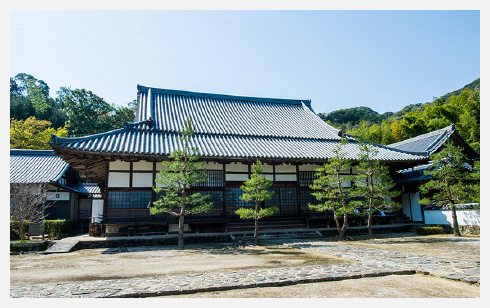
» Toshunji Temple
Toshunji Temple is a treasure house of cultural assets such as Sanmon, the main gate of a Buddhist temple, which was designated as an important cultural property. Feudal warriors argued heatedly at this temple at the end of Edo period.
Toshunji Temple is the family temple of Mori Motonari and the branch pagoda of Inoue Kaoru was built in the graveyard of this temple. This temple・・・
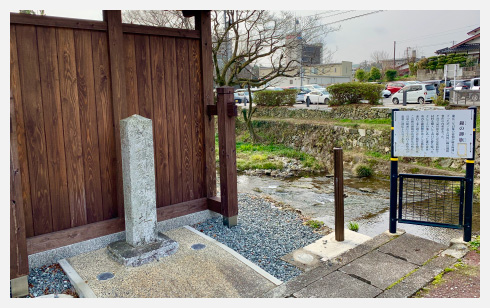
» The site of Nishikinomihata plant
The site of Nishikinomihata plant was the place where the flag called “Nishikinomihata,” raised at the front line of the new government army, was produced.
The “Nishikinohata” flag was raised at the front line of the new government army organized mainly by the Choshu and Satsuma at the Battle of Toba・・・
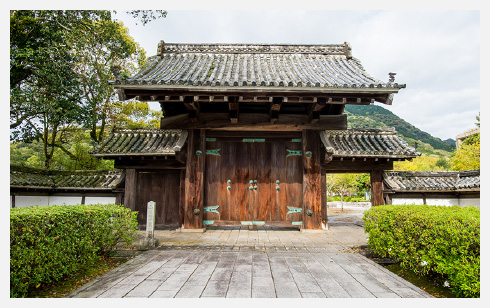
» The Old Yamaguchi Feudal Administration Office Gate
The Old Yamaguchi Feudal Administration Office Gate was the front gate of Yamaguchi Seijido surrounded by the latest Western style castle in the end of Edo period.
This gate was the front gate of “Yamaguchi Seijido” and built when the Domain headquarters was moved from Hagi to Yamaguchi in 1864, later design・・・
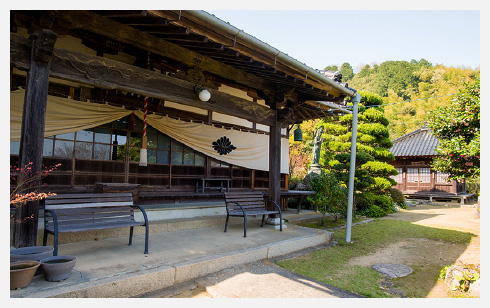
» Fumonji Temple
Fumonji Temple was the place where Omura Masujiro stayed and opened a private school to teach young feudal warriors Western military science.
Omura Masujiro was promoted to become an upper-class feudal warrior on the recommendation of Katsura Kogoro (Kido Takayoshi) and was dedicated to・・・
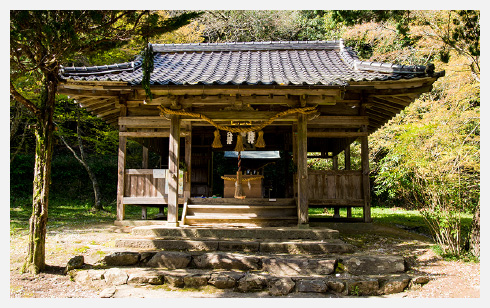
» Kido Shrine
Kido Shrine enshrines Kido Takayoshi who accomplished the Meiji Restoration as the Shinto deity of scholarship and the martial arts.
Kido Shrine enshrines Kido Takayoshi who played an active role as the central figure of the idealists of the Choshu Domain in the end of the Edo ・・・
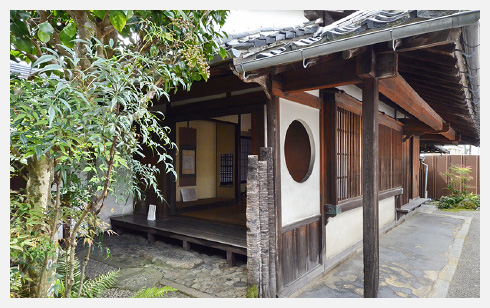
» Jippotei
Jippotei is a house separated from the main building of the wealthy merchant Bandai family and supported the Choshu Domain and patriots at the end of Edo period.
The Bandai family built this separated house with a fortune made from the soy sauce brewing business. Sufu Masanosuke started living in this plac・・・
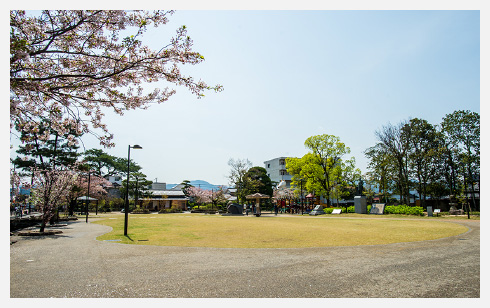
» Inoue Koen Park
Inoue Koen Park is the symbol park of the Yuda Onsen hot spring area with people from the city and tourists gathering there to take a rest.
As tourists, this park is a kind of front door to the Yuda Onsen hot spring area and for residents, many people remember it in their hearts as a ・・・
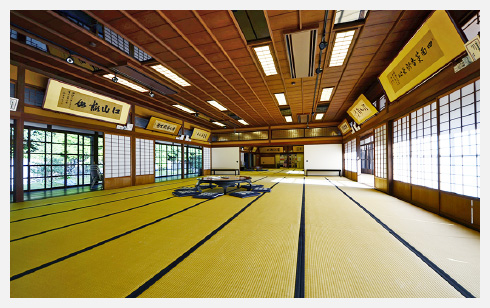
» Yamaguchi-shi Saikotei
Yamaguchi-shi Saikotei is a restored Japanese restaurant which was loved by the great men of the Meiji Restoration and in the modern period.
Saito Kobei, who was assigned as a representative cook of the Mori Domain established the Japanese restaurant “Gion Saikotei” in 1877. The hall i・・・
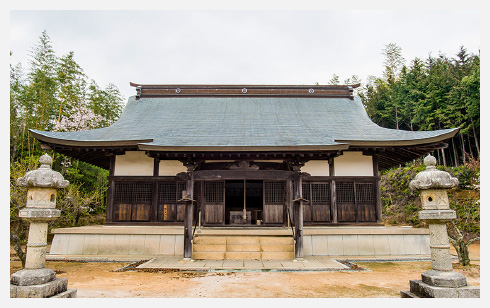
» Omura Shrine
Omura Shrine enshrines Omura Masujiro who was from Suzenji and became a key player in the Meiji Restoration.
Omura Shrine enshrines Omura Masujiro who was from Suzenji and one of the Ten Heroes of the Restoration. This shrine was moved to its current loc・・・
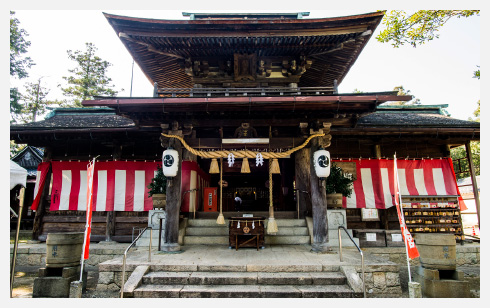
» Ima Hachimangu Shrine
Ima Hachimangu Shrine was the place that young feudal warriors such as Kusaka Genzui, Irie Kuichi and others got together and discussed each and every day about the Sonno-joi movement (the movement advocating reverence for the emperor and the expulsion of foreigners).
After the Domain headquarters moved to Yamaguchi in 1863, young feudal warriors (Kusaka Genzui, Irie Kuichi, Hori Shingoro, Kijima Matabei) got t・・・
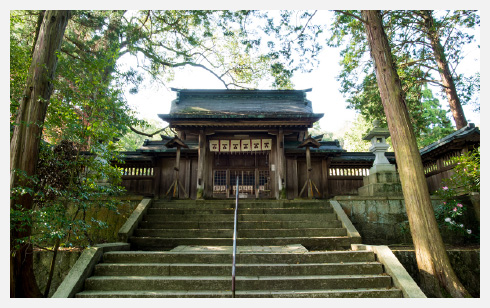
» Noda-jinjya Shinto Shrine
Noda Shrine enshrines Mori Takachika who was dedicated to the Meiji Restoration in terms of opening positions to persons of talent.
Noda Shrine enshrines Mori Takachika and also lies next to Toyosaka Jinja Shrine (transferred to its current place in 1871) which enshrines Mori ・・・
